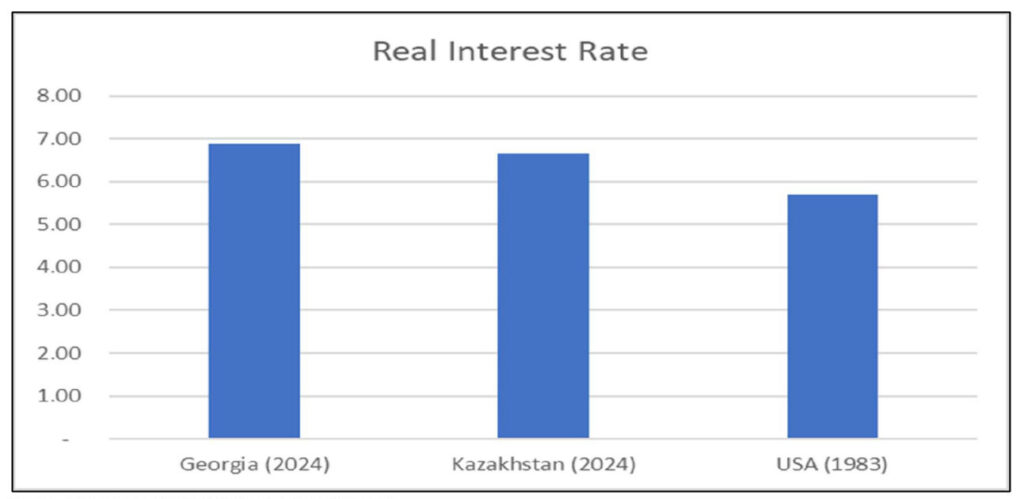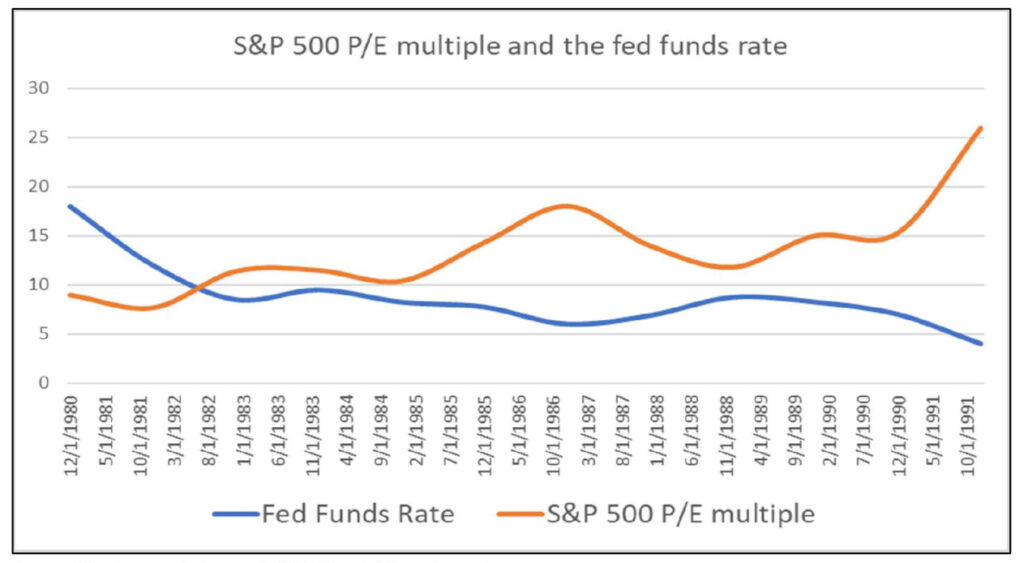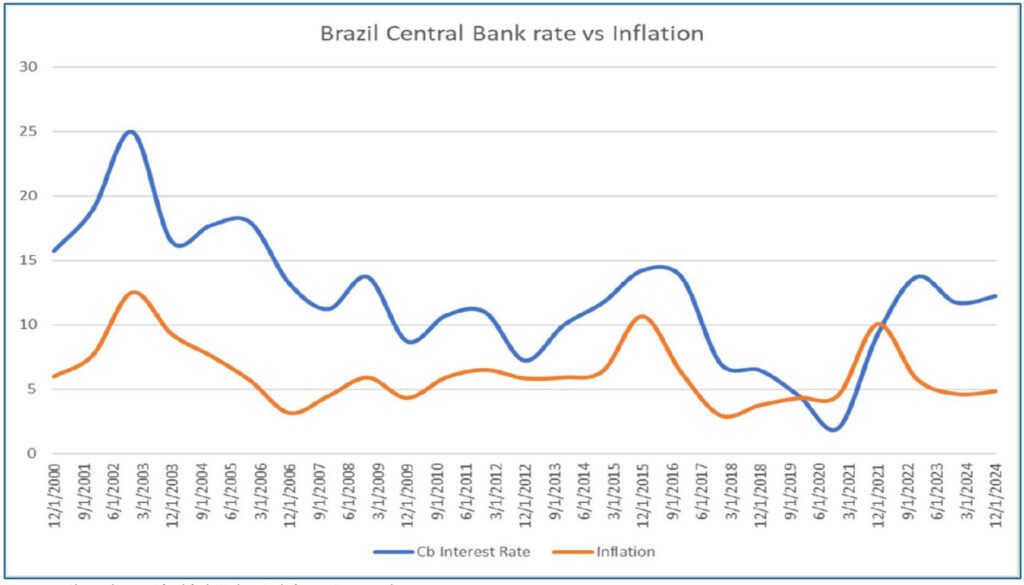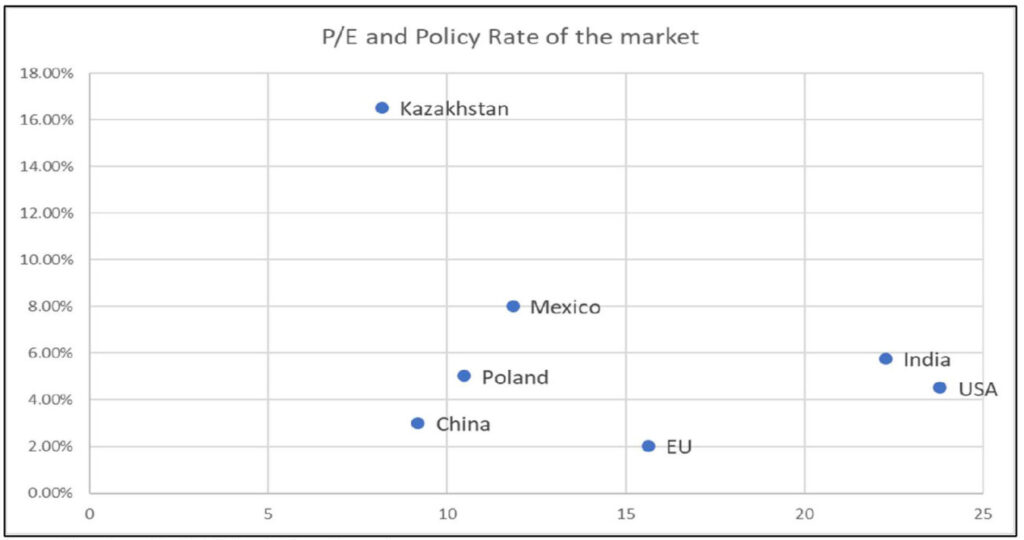We had the pleasure of speaking with Nishant Gupta, founder and CIO of Kanou Capital, a London-based long/short energy transition fund.
Nishant has over two and half decades of investment experience working alongside Peter Lynch and other renowned investors through his roles at Fidelity Investments, TT International, and Lansdowne Partners. He is an expert on energy, industrials, and materials and has covered multiple geographies including Asia, EU, and the US. Furthermore, Nishant has been co-teaching the value investing course at London Business School since 2019.
In this exclusive interview, Nishant provides insights into structuring Kanou Capital, how his experiences shaped Kanou’s investment philosophy and nuances of investing across the different geographies. We also dive into the investment strategy and the energy transition space, as well as its corresponding capital cycle. Finally, we learn more about Nishant’s contributions at London Business School.
Overview:
- Nishant Gupta’s Background
- Structuring Kanou Capital
- Kanou Capital’s Investment Philosophy (Cheap + Quality = Value)
- Nuances in investing Europe and Asia versus the US
- Kanou Capital’s Investment Strategy
- Insights into the Energy Transition Space, and Capital Cycle Dynamics
- Co-teaching the Value Investing Elective at London Business School
Tarek Andari: Tell us about your professional background and how the idea of launching Kanou Capital came about.
Nishant Gupta: Kanou capital is a fundamental long/ short hedge fund focused on energy transition. We launched Kanou Capital in February 2025 with a US$100 million seed. Our investment approach is highly differentiated, grounded in deep fundamental research, and focused on global sector coverage.
In terms of my background, I grew up in India and studied chemical engineering at IIT Bombay. Following graduation, I worked for five years in Japan as a software engineer, primarily at UBS Investment Bank, where my interest in finance began.
I then earned the MBA from Columbia Business School, participating in its value investing program, which greatly influenced my investment philosophy. After Columbia, I joined Fidelity Investments, spending nine years across their Boston, Hong Kong, and London offices. At Fidelity, I covered energy transition-related sectors such as industrials, materials, utilities, and energy, and managed analyst sector funds. This experience taught me rigorous fundamental investing, financial modeling, primary research, engaging deeply with management teams, and assessing long-term intrinsic value.
Subsequently, I joined TT International in London, a reputable boutique firm established by former Fidelity colleagues. At TT, I incorporated a macroeconomic perspective into my investing approach, complementing my bottom-up analytical foundation from Fidelity. Though I don’t consider myself a macro investor, this macro-awareness proved essential.
In 2019, I joined Lansdowne Partners’ energy fund, which later became Clean Energy Transition (CET), managing multibillion dollars in assets making it one of the largest dedicated energy transition funds globally. Here, I refined my expertise in shorting and disciplined risk management.
Kanou Capital is the combination of these experiences: the deep fundamental research approach from Fidelity, macroeconomic insights from TT International, and disciplined risk management from Lansdowne Partners and Clean Energy Transition.
Tarek Andari: Can we touch on structuring Kanou Capital, and maybe tell us some of the operational and fundraising challenges you’ve had, and how you initially approached building trust with your seed client to get going?
Nishant Gupta: Launching a new fund in the UK involves significant complexity and takes longer than other regions, particularly the US, which partly explains why fewer funds launch here.
When I left CET, I knew that I wanted to set up my own fund rather than joining another platform because the most important thing for me in any business is culture, and culture comes from the top, and you can only set it if you are setting your own firm. Additionally, my experience from three respected firms, Fidelity, TT, and Lansdowne, and our focus on energy transition, a critical long-term investment theme, opened doors to initial investor conversations.
I knew most of these investors were not Day One investors, but I knew we were building a long-term institutional quality product, so building these relationships was important. I am lucky that we have a lot of interest from some very high-quality investors who are closely following us. In these conversations, we discussed our investment style, our team’s strengths, and why we believe we have a repeatable framework for generating attractive risk-adjusted returns. We were fortunate to find an excellent partner who backed us with seed capital.
Operationally, given that FCA registration in UK can take time, we’ve outsourced non-investment activities such as trading, compliance, and operations. Fortunately, the industry has evolved significantly, making outsourcing efficient and seamless. We plan to gradually bring these activities in-house once our regulatory license is secured, likely early next year.
“The most important thing for me in any business is culture, and culture comes from the top, and you can only set it if you are setting your own firm”
Tarek Andari: Just to follow up, is Kanou capital registered as an LLP and US domiciled?
Nishant Gupta: Kanou Capital’s management company is UK-domiciled, and the fund itself is registered in the Cayman Islands. We structured the management company as an LLP because it allows us to treat team members as true partners, aligning incentives and fairly rewarding their contributions. My previous two firms were also LLPs, and I find this structure best reflects the collaborative culture we’re building at Kanou.
Tarek Andari: You’ve combined 3 investment frameworks built upon from your experience. So, what would be an ideal client then? Are they still long-term clients with sticky capital, measuring you on a long-term benchmark, or given the long/ short aspect, are you a bit shorter to near term on your results?
Nishant Gupta: That’s a good question. While energy transition is undoubtedly a long-term theme, we chose a long/short approach rather than long-only because the sectors we invest in tend to be highly volatile and cyclical, driven by macro factors like commodities, politics, and regulation. Our goal is to compound investors’ capital at double-digit rates over a long horizon while carefully managing volatility.
We see energy transition today as being on the cusp of major change, much like the technology sector was 25–30 years ago. This inflection point presents a significant opportunity to generate attractive long-term returns. Our investment philosophy focuses on deep fundamental analysis, understanding management teams, and assessing capital allocation decisions, while allowing these investments to play out over time rather than relying on short-term trading.
Our analysis indicates that dispersion in returns within energy transition sectors is comparable to that in technology, a sector where long/short strategies have successfully generated strong risk-adjusted returns over multiple decades.
Tarek Andari: You touched on the investment philosophy, happy to move into that next. You mentioned, starting in UBS then going to the value investing program, learning fundamental analysis, then looking at shorting. So, which experiences have influenced you the most or shaped your philosophy over time?
Nishant Gupta: Great question. The first big shift for me was the value investing program at Columbia Business School, where I learned firsthand from great guest lecturers who were practicing investors on the Wall Street. While studying there, I also worked part-time at a very reputable hedge fund called Tyndall Management, founded by the universally respected Jeff Halis. We did deep-dive research but took only a handful of new positions each year, an experience that taught me the importance of patience and discipline in investing.
At Fidelity, I saw these principles in action. Portfolio managers like Will Danoff and Joel Tillinghast – completely different styles, one growth, one value—both beat the market for decades. Early on, I also had the privilege of spending time with Peter Lynch. Each quarter, he would sit down with our small group of new analysts for candid, in-depth discussions about investing. His passion for stocks was infectious, even after all his success, and it was incredibly inspiring to witness.
One lasting lesson came from a portfolio manager at Fidelity who had a sign on his door: “Cheap is not value. Cheap + Quality is value” That line stuck with me. It became central to how I invest and is something I still teach my students at London Business School.
Covering cyclical sectors over the past two decades reinforced those lessons. Cycles create windows where high-quality businesses temporarily trade cheap. If you stay patient, you can collect steady singles and, once in a while, swing for that home run.
Investing is endlessly fascinating—you’re always learning. Even being right 60% of the time can yield outstanding results. That mix of value discipline, patience, and passion for stocks shaped me into the investor I am today.
“Cheap is not value, Cheap + Quality is Value”
Tarek Andari: Thank you for bringing up ‘Cheap + Quality = Value’, there are different shades of value investing as you mentioned, and that anchors the discussion well. Could you maybe share with our community some nuances you consider when looking at stocks in different geographies, for example, or assessing other investor strategies in different geographies in terms of portfolio, turnover duration, etc, maybe. How does that shape your investment strategy?
Nishant Gupta: Sure and let me also connect this to your earlier question.
At Kanou Capital, our philosophy centers on changes in ROIC (Return on Invested Capital), which we see as the single most important metric for any business. We analyze stocks as businesses, looking at market position, competition, long-term drivers, and management’s capital allocation. Mauboussin’s work, and our own analysis, shows that companies moving up quintiles generate outsized returns. The market tends to price short-term earnings quickly but often misses these gradual, multi-year improvements in ROIC, whether driven by culture shifts or better capital efficiency. That’s where we find the most opportunity.
This also shapes how we look at sectors. Fast-moving themes like AI are quickly priced in, but areas such as energy infrastructure, much of which is 50–60 years old, are slower-moving and overlooked. The shift to renewables, EVs, storage, and electrification will take decades. These long-duration changes allow us to invest with conviction, compound capital steadily, and avoid the volatility that often comes with chasing near-term themes.
“In the U.S., management incentives are closely tied to shareholder returns, leading to efficient capital allocation and quicker decision-making. In Europe, management teams think longer-term but often operate with less efficient balance sheets, which can keep valuations lower.”
Geography plays a role too. Charlie Munger used to say that you need to understand somebody’s incentive to understand how they are going to act. In the U.S., management incentives are closely tied to shareholder returns, leading to efficient capital allocation and quicker decision-making. In Europe, management teams think longer-term but often operate with less efficient balance sheets, which can keep valuations lower. On the other hand, Asia is a difficult market to invest in, because the mentality that minority shareholders are owners is only acknowledged by very few companies and very few management teams. We focus there on high-quality businesses with durable moats only because of this reason.
Our strategy revolves around identifying slow, durable ROIC improvements and partnering with management teams that are aligned with shareholders. These dynamics differ by region, but the core philosophy remains the same.
“Asia is a difficult market to invest in, because the mentality that minority shareholders are owners is only acknowledged by very few companies and very few management teams.”
Tarek Andari: Thank you. A good way to round off both questions. I’m aware of the tables that you’re talking about on TSR and quintile movements. I have two questions from the same paper. I believe he’s presented a dispersion of returns of economic profit for companies, and the Russell 3,000 for the 4–5 year period between 2018 to 2022, and the dispersion shows that a lot of the economic profit is concentrated in the best decile firms versus having a sort of a linear spread between worst to best. You see a lot of the economic profit at the top 10%. Do you see something similar in Industrials and Energy Transition? Or is it more spread out? And you have winners across the spectrum.
Nishant Gupta: I’d say it’s a bit more balanced in our sectors. Unlike technology, where you often see a “winner-take-all” dynamic, sectors that we invest in tend to be more cyclical, so the dispersion is wider. That said, we mostly focus on companies in the 4th and 5th ROIC quintiles, the second-best and best quality buckets. Occasionally, if a high-quality company temporarily falls to a lower quintile, we’ll step in, but we generally avoid the lowest end of the spectrum.
As Ben Graham put it, “The fastest way to lose money is to buy low-quality, highly cyclical companies during good times.” People get overly optimistic when conditions are strong and pile into weak businesses, and that’s when mistakes happen. That quote, written back in the ’50s, is still just as true today.
Tarek Andari: Another topic that Mauboussin touches on as well is the level of investment in intangible assets versus tangible, given your comparison to the technology sector, do you see this in Industrials and Energy Transition as well? If so, what frameworks are you using to assess quality on the intangible scale, versus tangible?
Nishant Gupta: That’s a good question. In our universe, these are mostly heavy capital cycle sectors. The bulk of the assets are tangible, and when it comes to intangibles, what you typically see on the balance sheet is Goodwill, mostly from past M&A. So we don’t face the same complexities around intangibles that you see in tech or brand-driven businesses.
Tarek Andari: Maybe now is a good time to bring up the Bloomberg report. Since we’re touching on the sector in a bit more detail. A strand of the energy transition sector, which is clean energy, in my mind maybe encompasses software companies, some more tangible assets and infrastructure maybe, across the spectrum of business models there. I will leave it to you to guide me on that. Bloomberg quoted you saying that the sector was dead for now so could you maybe walk us through the rationale? And maybe again a question on frameworks whether you use the capital cycle framework here at all to come to such a conclusion.
Nishant Gupta: The headline didn’t fully capture the essence of what I was trying to say. Energy transition is complex. When we think of energy, there are three components to the pie: a third is electricity, a third is transport, which is oil, and a third is heating, which is mainly natural gas. Now, with that composition, clearly the electricity part is growing. Helped not only by AI-driven demand but also by the shift away from oil in transport and gas in heating. More EVs mean more electricity use, and building codes are increasingly pushing electric based heating.
“When we think of energy, there are 3 components to the pie: a third is electricity, a third is transport, which is oil, and a third is heating, which is mainly natural gas. Now, with that composition, clearly the electricity part is growing”
Our focus is on going deeper in the supply chain of this long-term transition. The capital cycle has started. We are in the second year of a 2-3 decade investment cycle . We’re focusing on the supply chain. We look at the energy transition from a non energy lens. Our focus is to invest in industrials and materials because you can find lots of companies with low capital intensity and high ROIC.
“The capital cycle has started. We are in the second year of a 2–3 decade investment cycle”
Clean energy specifically is struggling right now because subsidies have created volatility rather than stability. I saw something similar back in 2007–08: policy noise drove boom-and-bust cycles that prevented the supply chain from planning capacity properly. Ironically, clean energy today is competitive on cost even without subsidies. If we removed subsidies and allowed demand to stabilize naturally, it would create more certainty and accelerate the build-out. But I really hope, because I do care about the environment and the planet, and we all should do, I really hope the renewables and cleaner fuel should take a bigger market share.
I’ll give you an example. I’m in Boston today visiting after a very long time. My investment journey started in Boston when I started in 2008. I remember Boston winters had snowfall everyday and big snowstorms every winter. I was shocked to learn that it barely snows in Boston anymore. And people are still debating whether there’s global warming or not. To go back to the meaning of Kanou. The word Kanou is a Japanese word which means ‘Possible’, and to my earlier point and to the energy transition, this word Kanou, it highlights the various opportunities, challenges, and uncertainties associated with moving towards a more sustainable and low carbon energy system. It acknowledges the complexity of this transaction involving technological, economic, social, and political dimension. The reason we chose Kanou, which means “Possible”, is that it is still possible. It’s getting late, but it’s still possible to stop and reverse climate change. But we don’t have a lot of time.
Tarek Andari: What KPIs then, or metrics, are you using here to gauge over or under capacity at different points in the market?
Nishant Gupta: In capital-intensive and manufacturing-driven sectors, the key KPI is utilization, but we also closely watch inventories, order intake, and organic growth.
Demand can be volatile in the short term, but over the long run, it usually tracks GDP-like growth rates. Supply, on the other hand, is easier to forecast in our sectors because it takes multi-years for new capacity to come online.
Another KPI we watch is marginal cost. Understanding both utilization and how the marginal cost curve is moving gives you a sense of where pricing power and profitability are headed.
Finally, we focus on free cash flow generation and how management reallocates that cash. We also emphasize ROIIC, or Return on Incremental Invested Capital, which is forward-looking. ROIC looks backward, but ROIIC answers: “If you invest a dollar today, what’s the expected return on that incremental capital?” That forward view is critical for judging management decisions and future returns.
ROIC looks backward, but ROIIC answers: “If you invest a dollar today, what’s the expected return on that incremental capital?” That forward view is critical for judging management decisions and future returns.
Tarek Andari: We have a couple of minutes left, should we conclude with your excellent contributions in academia over the past 7 years. I’m aware you’ve been a Visiting/ Affiliate lecturer at London business school co-teaching the value investing elective. Could you reflect on why you think this is very important to do? Is there any advice you’d share with the MOI Global community to be more engaged or aligned with an academic body?
Nishant Gupta: The Value Investing program I took at Columbia Business School was truly exceptional because it was all about learning from real investors and real-world situations, not just textbooks. At Columbia, every week we worked on fresh, live case studies, companies that were actively being debated in the market. You learn by doing the work, discussing with professors and fund managers, and engaging with classmates who are all analyzing different stocks. That kind of hands-on experience is invaluable. That’s what we try to do at London Business School.
Having spent 15 years alongside investors who consistently beat the market, I don’t question whether markets are efficient, I know they’re not. The key is figuring out how to exploit those inefficiencies. One of the core lessons we emphasize is that “cheap is not value”. Twenty years ago, buying low-multiple stocks might have worked, but with today’s quants and multi-managers competing on short-term moves, you need to focus on quality and on long-term undercurrents that the market often overlooks.
Our teaching emphasizes understanding businesses deeply: what they do, their drivers, how to value them, and only then looking at price. There’s a great line from an ex-Fidelity fund manager: “The paradox of investing is that the more long-term your perspective, the more short-term outcomes you get right”. That’s exactly what we want students to internalize, focus on the long-term fundamentals, and the near-term noise takes care of itself.
For me, giving back through teaching is personal. My parents were both schoolteachers. I learned a lot about investing at Columbia, and it feels like a responsibility to help the next generation of investors develop the same foundation.
Tarek Andari: Thank you that’s inspirational. If we can have maybe two more minutes, I would like to ask a challenging question. Why do you feel that it is relevant to teach value investing when the active investing space is under pressure?
Nishant Gupta: That’s a great question. I’d say there are many ways to make money in markets. I’m not claiming that value investing is the only way, but it’s the approach that has worked for me, and it’s what I know best, so it’s what I can teach with conviction.
When we talk about value investing today, it’s very different from what it was 20–30 years ago. Modern value investing isn’t just about buying something cheap on a low multiple. We’re happy to pay a fair price, even a premium, for a high-quality business with strong management, a clear MOAT, good growth prospects, and the ability to compound over time. To us, that combination – quality, durability, and growth at a reasonable price – is what creates real value.
We see our role as providing various frameworks and being a resource to students. It’s deeply rewarding to share what’s worked for us and help them develop the skills and mindset needed to invest with a long-term perspective.
Tarek Andari: Sure, and in terms of the tools being learned, and the applicability of the tools in a challenging active management industry. Would you say it’s still right to teach the class? And it’s important for these tools to be taught even though the prospects of a long-term career in this field may not be available for too long?
Nishant Gupta: I’d push back on the idea that long-term investing is dying. If you look at where the real capital sits, endowments and large institutions, they care deeply about long-term compounding. They value investors who can deliver steady double-digit returns and remain focused on the long game.
In my view, the key is to integrate technology into every aspect of money management and risk management.
That said, I understand where the question comes from. The increasing focus on short-term trading has created more volatility in markets.
Too often, investors let market moves undermine their conviction, but today’s markets are driven far more by flows and algorithms than by fundamentals. If you treat those moves as signals, it’s easy to get shaken out of good ideas.
Instead, focus on what you do best: deep research, conviction in your process, and holding through volatility. If you can do that, there’s still enormous opportunities for long-term investors who think independently. For students, my message is simple: be positive. The opportunity for thoughtful, long-term investing today is every bit as good as it was when I started in 2006, if anything, it’s better given the higher volatility due to increasingly short-term focus.
Tarek Andari: As a closing statement, can I ask you to provide a piece of advice, one you would have given yourself when starting out or when reflecting on your journey for the MOI Global community?
Nishant Gupta: I don’t think this will be something you haven’t heard before, but it’s timeless: do what you genuinely enjoy. Don’t choose finance, or any field, just because of the money. Look at Meta paying US$200 million to AI engineers. If you truly enjoy what you do, you’ll naturally get better at it, and the success will follow.
Tarek Andari: Perfect thanks so much, Nishant. I really appreciate it.
Nishant Gupta: Thank you for the opportunity.
The content of this website is not an offer to sell or the solicitation of an offer to buy any security. The content is distributed for informational purposes only and should not be construed as investment advice or a recommendation to sell or buy any security or other investment, or undertake any investment strategy. There are no warranties, expressed or implied, as to the accuracy, completeness, or results obtained from any information set forth on this website. BeyondProxy’s officers, directors, employees, and/or contributing authors may have positions in and may, from time to time, make purchases or sales of the securities or other investments discussed or evaluated herein.





